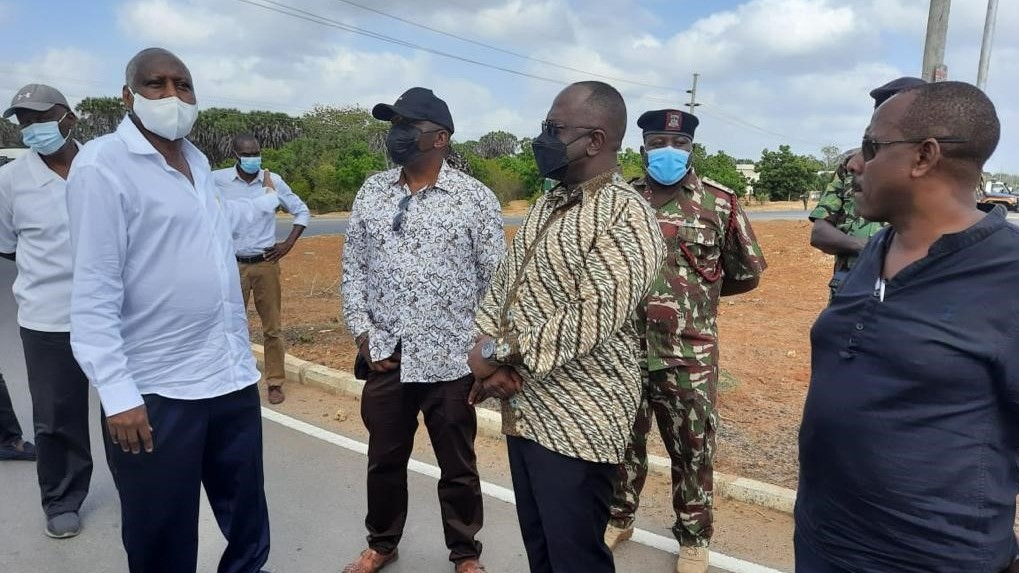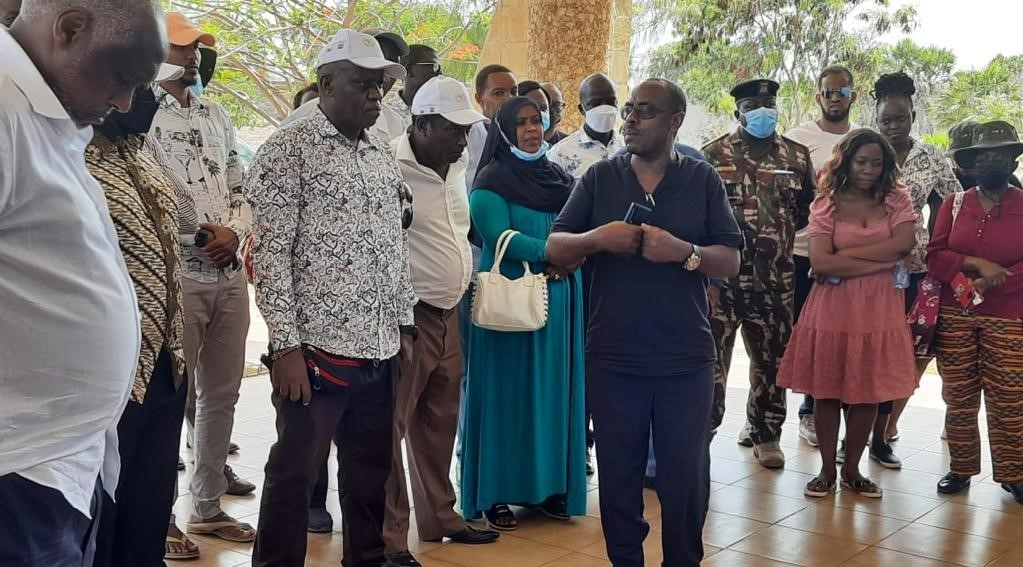PIDA Week Delegates Visited Lamu Port
Delegates who attended the 7th PIDA Week conference which took place in Nairobi last week spent the weekend visiting some of the infrastructure projects being implemented by the Kenya Government.
A high-level delegation led by the National Treasury and Planning CAS, Eric Simiyu Wafukho; Economic Planning Secretary, State Department of Planning, Katherine Muoki; NEPAD Kenya Secretariat CEO, Amb. Samori Okwiya; Senior Advisor to the African Union High Representative for Infrastructure Development in Africa (Rt.Hon. Raila Odinga), Ambassador Elkanah Odembo; LAPSSET Corridor Development Authority DG, Stephen Ikau; Lamu Port General Manager, Engineer Abullah Smatar visited Lamu Port as part of LAPSSET project.
This is Eastern Africa’s largest and most ambitious infrastructure project, bringing together Kenya, Ethiopia and South Sudan and connecting with Western Africa. Lamu Port has overtaken Mombasa Port in capacity and when fully completed it is slated to be Africa’s largest port and counted in same league with the Shanghai of Asia, the Rotterdam of Europe, the Los Angeles of America and the Santos of South America.
The LAPSSET project in its design consists of seven key infrastructure projects starting with a new 23 Berth port at Lamu (Kenya); Interregional Highways from Lamu to Isiolo, Isiolo to Juba (South Sudan), Isiolo to Addis Ababa (Ethiopia), and Lamu to Garsen (Kenya), Crude Oil Pipeline from Lamu to Isiolo, Isiolo to Juba; Product Oil Pipeline from Lamu to Isiolo, Isiolo to Addis Ababa; Interregional Standard Gauge Railway lines from Lamu to Isiolo, Isiolo to Juba, Isiolo to Addis Ababa, and Nairobi to Isiolo; 3 International Airports: one each at Lamu, Isiolo, and Lake Turkana; 3 Resort Cities: one each at Lamu, Isiolo and Lake Turkana; and The multipurpose High Grand Falls Dam along the Tana River.
Since the first berth of the Lamu Port was completed and commissioned by H.E President Uhuru Kenyatta, two more berths have been completed and are ready for commissioning. More focus within the LAPSSET project will now shift to accelerating the implementation of the other components to ensure that they are completed by 2030.
This will include seeking People-Public-Private Partnerships(4Ps) and shifting implementation approach to be concurrent as opposed to phased-out sequential approach that is slow.





